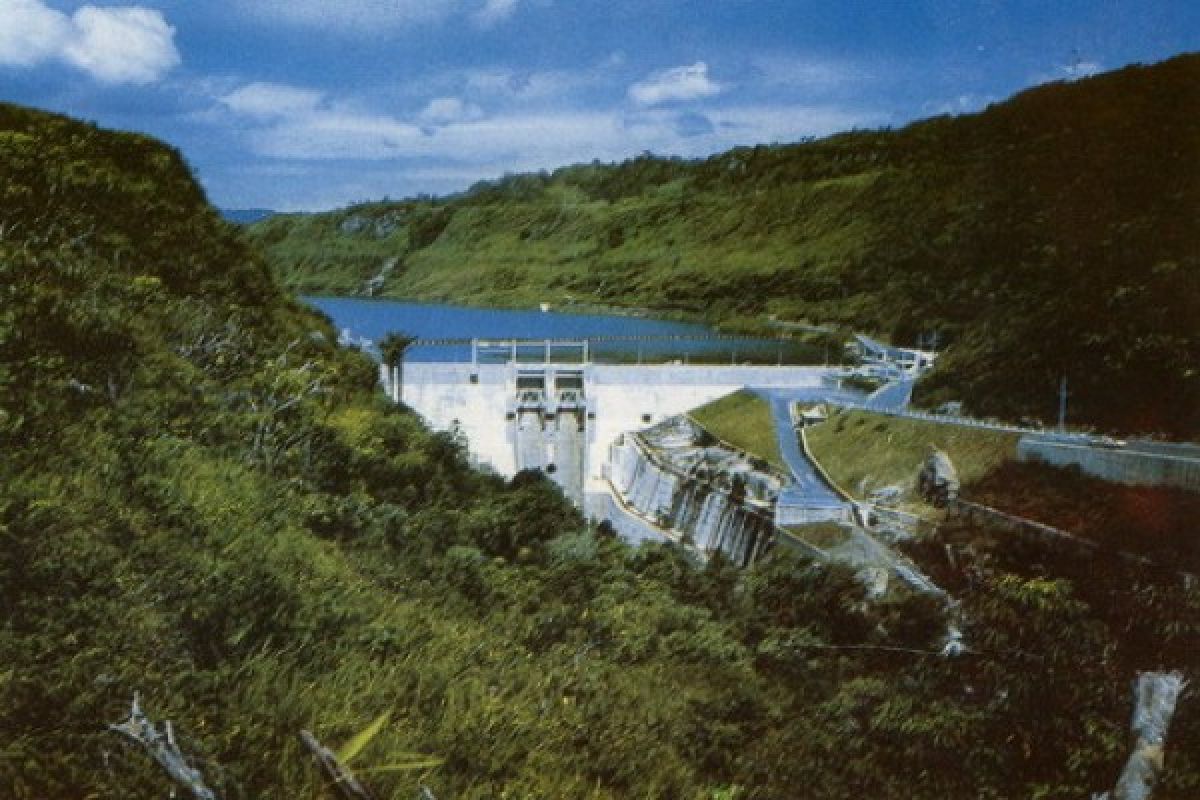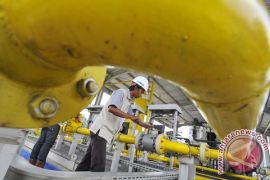"We will likely take over Inalum. We have sufficient funds."Jakarta (ANTARA News) - The Indonesian government is still negotiating the takeover of PT Indonesia Asahan Aluminium (Inalum), an Indonesia-Japan joint venture whose contract will expire in 2013 after more than 30 years of operation in Asahan, North Sumatra.
Finance Minister Agus Martowardojo stated here on Friday that the ownership of Inalum should return to the government after the expiry of the contract in October next year.
"Japan`s Nippon Asahan Aluminium should no longer extend the cooperation contract. Moreover, Indonesia has suffered losses for about 22 years during the cooperation," he said.
Although the finance ministry wished that Inalum be returned to the state, the government was still negotiating and considering various aspects, Agus added.
"The finance ministry`s recommendation is clear: the government must acquire it, because that will be in Indonesia`s interest. However, the government has not decided yet and discussions are ongoing," he explained.
In the meantime, the State-owned Enterprise Ministry (SOE) also expressed interest to acquire Inalum.
SOE Minister Dahlan Iskan said the companies under his ministry`s management were ready to take over Inalum if the government wanted them to do so. "I am waiting for a decision by the government regarding Inalum. If we are asked, I am ready to take it over," Dahlan said.
He stated that PT Aneka Tambang, a publicly listed state firm under the SOE ministry, was interested in taking over Inalum.
Noppon Asahan Aluminium holds a 58.9 percent stake in Inalum.
According to Industry Minister MS Hidayat, the government has prepared a budget of Rp7 trillion to take over tin producer PT Inalum in 2013.
"Indonesia is seeking to hold 100 percent shares of the company by buying the rest of the 59 percent shares," he said.
"The government is still negotiating unofficially in order to finalise a purchase agreement. It is also discussing legal issues and the fate of workers. Official negotiation will start in August or September this year," Hidayat explained.
"According to the master agreement, if we decide to take over, the negotiations must be finished a year before the deadline," he noted.
Therefore, Hidayat added, the negotiations and payment for Inalum shares must be finished by the end of October because the deadline was October 2013.
Indonesia owns 41.13 percent of Inalum`s stake, while the remaining 58.87 percent belong to Nippon Asahan Aluminum (NAA). Half of the NAA shares are owned by the Japan Bank for International Cooperation (JBIC), which represents the Japanese government, and the other half belongs to 12 other Japanese firms.
The Indonesia-Japan joint venture project began operating on January 6, 1976, based on an agreement signed on July 7, 1975. The contract will expire in 2013.
Inalum has a production capacity of 230,000-240,000 tonnes per annum and it booked a profit of US$12 million in 2010.
Based on the assessment of three audit agencies, Inalum is valued at around US$650 million, with NAA�s majority stake worth around US$550 million.
If acquired in 2013, a number of assets (such as power plants with a capacity of 604 megawatts) will automatically come under Indonesia`s possession.
"We are ready to pay compensation in accordance with the 2013 booking value. We need to pay attention to the booking value in order to know its works. The values should not be inflated. In this case, it should be assessed by an independent party," Chief Economic Minister Hatta Rajasa said last year.
Based on an estimate, the government has to pay around US$650 million in compensation to NAA for the Japanese company's investments in the smelter and power plants.
"After taking over Inalum, the government may ask a state-owned company to manage Inalum but so far no decision has been made," Hidayat said.
The government will soon negotiate with NAA on the Inalum takeover. "According to the plan, we will hold an official meeting in August or September. Both sides will sign a document ending the cooperation in October," said Hidayat, the chief of the team in charge of negotiating PT Inalum`s cooperation contract, on Friday.
"After the document is signed there will be a transitional period of one year before the takeover. There are crucial issues on which we must negotiate. We still have time to complete the audit process and get a second opinion from a consultant and other parties. What is important is that the government is determined to buy 100 percent of Inalum shares," he added.
In the meantime, lawmaker Irmadi Lubis, from PDIP, hailed the government`s takeover efforts. "We hope that the North Sumatra governor will not be left behind in the process of takeover," Irmadi said in response to the government`s request for additional funds to finance the takeover. He added that the takeover would help the revival of North Sumatra`s economy.
North Sumatra local legislator Meilizar Latif said last year that Indonesia should be able to manage Inalum without the involvement of foreign companies. "Indonesia must be able to manage it and Inalum should not fall in the hands of foreigners after 2013," she added.
Almost all of the 2,600 workers at Inalum are Indonesians.
"Indonesians are handling most of the activities of Inalum. Of the 270 Japanese workers at the beginning of the operations, only two are not yet replaced by Indonesians. The two are in the top management positions," she said.
Domestic companies are also vying for Inalum. According to Dahlan, many companies have expressed interest in buying PT Indonesia Asahan Alumunium (Inalum) shares.
"The companies include Japanese and Indian companies, as well as state and private national firms," he said after chairing a meeting between the State Enterprises Ministry and the board of directors of PT Telekomunikasi Indonesia at the Telkom building in Jakarta.
"Because of the tight competition among bidders for Inalum shares, Indonesian state firms must prepare themselves, particularly with regard to funds," Dahlan said.
"We will likely take over Inalum. We have sufficient funds," Dahlan added.
(T.A014/INE/KR-BSR/B003)
Reporter: by Andi Abdussalam
Editor: Priyambodo RH
Copyright © ANTARA 2012










